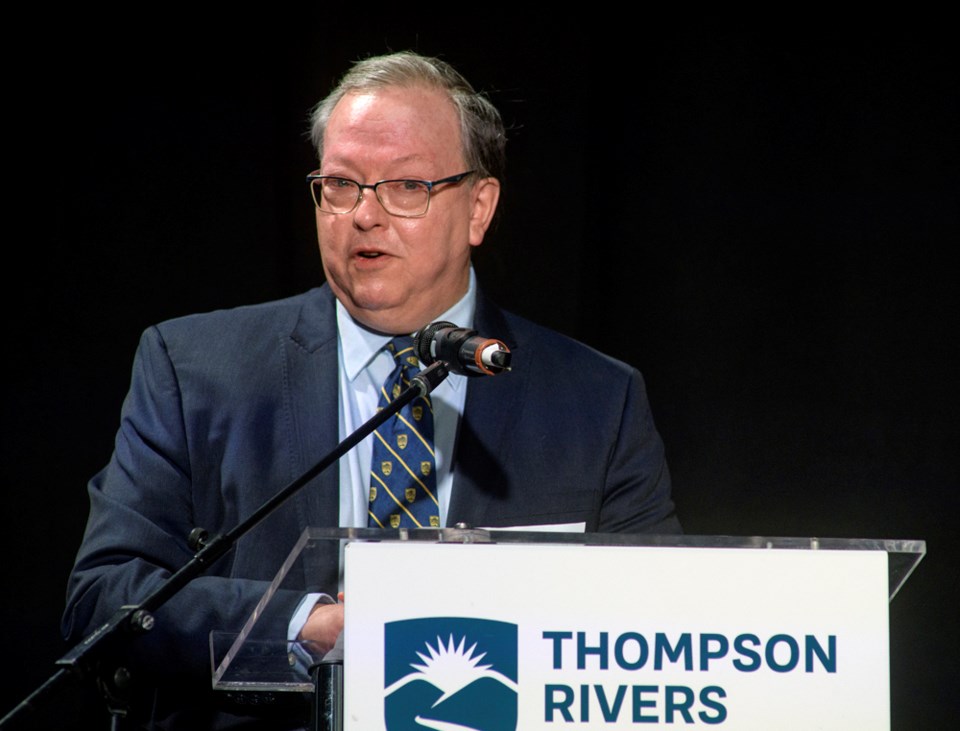A controversial new protocol implemented by the president of Thompson Rivers University in an effort to keep information about the public institution out of the hands of reporters is expected to be discussed by university senators at an upcoming meeting.
TRU President Brett Fairbairn introduced the new procedure during Monday’s meeting of the university’s senate.
The new protocol will keep all agenda packages hidden from reporters and the public until three hours before a meeting of TRU’s board of governors or senate.
Previously, agenda items and supporting materials — often including newsy reports written by TRU staffers — had been made public one week in advance of each meeting. The time allowed senators, members of the community and reporters to peruse the information for anything noteworthy.
Fairbairn took full credit for the change and was very clear about why — to stop journalists from covering the business of the university on anyone's terms but his.
“The media have discovered those written reports as a convenient way to obtain quotable information about what’s going on at TRU, and that isn’t the audience that I’m writing them for,” he told senators on Monday.
“If I were looking to write a media release, I would write a media release. Those reports are for you as senators.”
'Really problematic'
Juliana West, a TRU senator and faculty member, questioned Fairbairn regarding the new protocolduring Monday’s meeting — and she told Castanet Kamloops she's not done yet.
“At the very least, I will be putting an agenda item forward for the next senate meeting that this be a topic for discussion,” she said, noting Castanet’s coverage of the issue prompted conversation Tuesday on campus.
“Because of your coverage, I’ve heard from faculty members saying, ’This is a really problematic event.’”
West said the move is the latest in a series of decisions by TRU leadership that only serve to increase opacity — at a time when the university community is still reeling from a high-profile workplace misconduct probe that divided many on campus and the controversial manner in which the fine arts program was cut.
“My experience as a faculty member and senator with how the closing of the visual arts program was conducted, I would say there were some concerning events that occurred,” she said.
“When there are practices that actually go against values of transparency and accountability, that’s concerning.”
More transparency concerns
West is not the only one on campus concerned by what might be characterized as a slippery slope when it comes to issues of transparency and accountability.
Craig Jones, a professor in TRU’s law school and a former senator, said the same thing.
“You will know that I have been disappointed in the past with the degree of not just transparency at the university, but participatory democracy in all of its manifestations — I think that has not been the highest priority of this president,” he told Castanet.
“You could say this is shocking but not surprising.”
Jones said TRU’s senate could pass a motion that would require agenda items to be made public a week in advance of a meeting — or under whatever terms senators felt appropriate.
The senate is scheduled to meet next on April 22. TRU's board of governors is slated to meet Thursday.
Castanet Kamloops asked TRU to provide comment for this story but received no reply.

